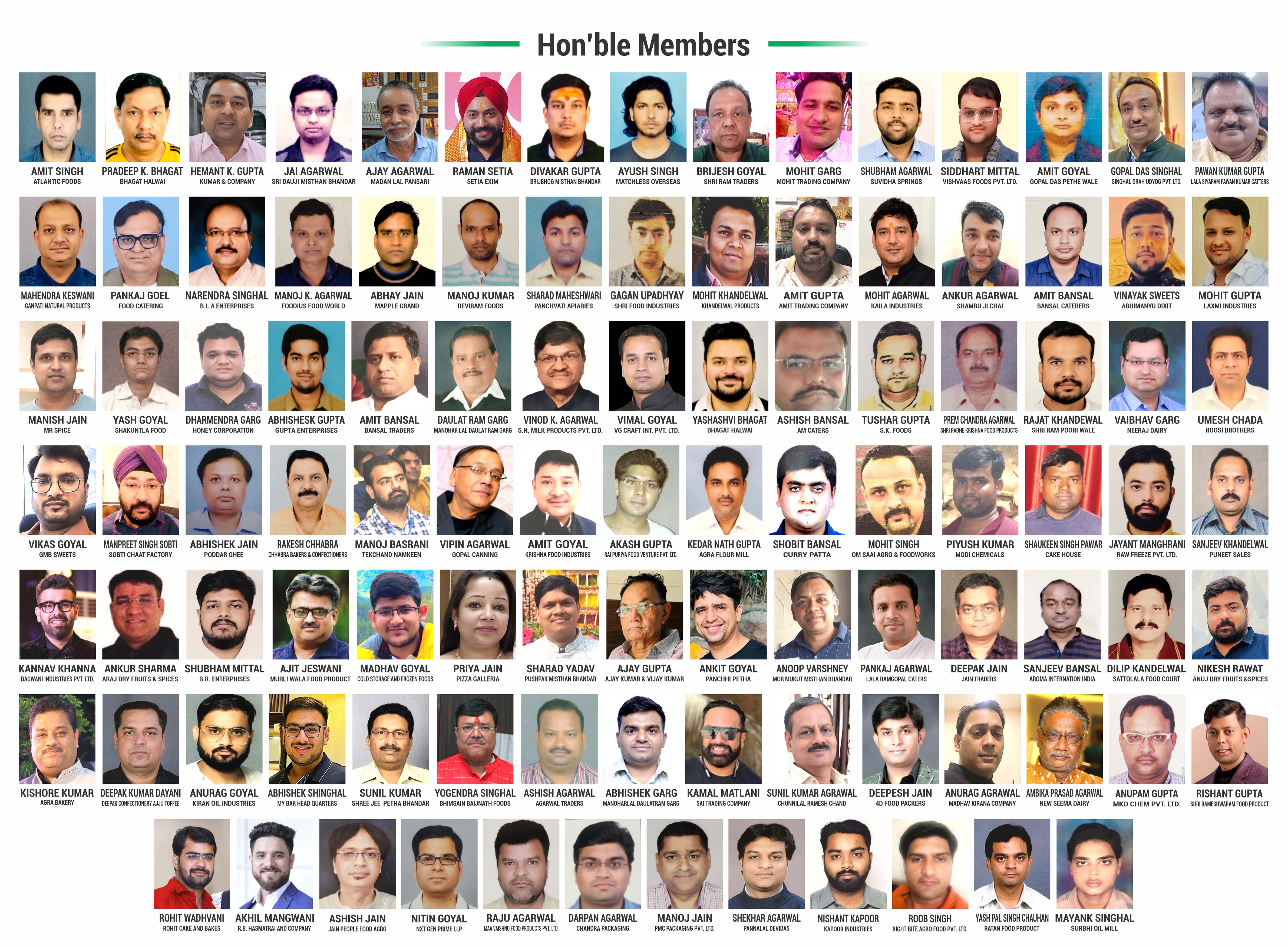


Shri Rakesh Garg
Vice President,
U.P. Small Industries Corporation Ltd.

Shri Pooran Dabur
President,
AFMEC, Socialist and Senior Industrialist

Shri Amar Mittal
National Secretary,
Indian Industries Association

Shri T.N. Agarwal
President,
Agra Vyapaar Mandal

Ajay Agarwal
Chairman,
BN Group

Shri Dinesh Rathore
Chairman,
Mahesh Edible Oil Industries Ltd.

Shri Dwarika Prasad Agarwal
Chairman,
Manoharlal Puranchand Daal Mill

Shri Subhash Chandra Goyal
Director,
Panchhi Petha

Shri Vishnu Kumar Goyal
Chairman,
Munshi Panna Masala Udhyog Pvt. Ltd.

Rajesh Agarwal
Ex-President,
Brand Rasoi Ratan

Shri Rajkumar Bhagat
President,
Bhagat Halwai Private Limited

Anuj Singhal
General Secretary,
Brand Nandani Salt

Nitin Goyal
Munshi Panna Masala,
Udyog Pvt. Ltd.

Utkarsh Agarwal
Agra Roller Flour Mill

Tarun Agarwal
Bholebaba Milk Food Ind.s Ltd.

Ashish Garg
BP Flour Mill Pvt. Ltd.

Kumar krishna Goyal
Agra Oil & General Industries Limited

Shailesh Agarwal
Jai Kapish Udhyog

Anshul Agarwal
Manoharlal Puranchand Daal Mill

Vivek Agarwal
Ajanta Dairy Milk & Food Pvt. Ltd.

Siddharth Agarwal
Shilpa Masale

Vikas Chaturvedi
Chaubeji Masale

Rajesh Goyal
Executive Member,
Mana Caterers

Rajesh Agarwal
Executive Member,
Pracheen Petha

Atul Bansal
Executive Member,
Shri Girraj Idustries Dal Mill

Ashok lalwani
Executive Member,
Kavita Dry Fruits

Sandeep Rastogi
Executive Member,
Imperial Frozen Food Product

Manish Agarwal
Executive Member,
Agarwal Crockery & Caters

Mahaveer P. Mangal
Executive Member,
Mahaveer Agro Mills

Abhishek Chaurasiya
Executive Member,
Guruji Masala

Shri Rajkumar Bhagat
Executive Member,
Kailia Agro Industries

Magan Mittal
Executive Member,
Balaji Agro Food

Er. Umesh Sharma

Rahul Jain

CS Anuj Ashok

CA Nitesh Gupta

Abhinav Rastogi



Entering the Indian market involves the incorporation of private and public sector companies, which is the most common method for establishing businesses in the country. The following are the key entry modes:

The regulatory landscape in India is governed by comprehensive frameworks designed to ensure food safety and promote sustainable business practices:

India’s Foreign Direct Investment (FDI) policies are among the most liberal globally, offering lucrative opportunities in several sectors:
Connect with us for any Query
+91 96395 47265